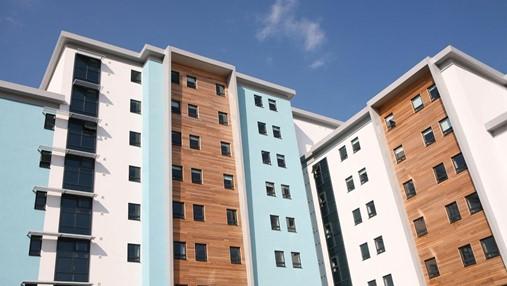The question is often asked of me why residential investors shouldn’t simply focus on very high yielding assets to bolster their cash flow.
And I understand the fascination. You’ll have seen the catchphrase, “Cash flow is king!” hundreds of times in online stories.
In fact, my last blog described just how beneficial commercial holdings can be in the right portfolio because they create a strong cash flow position.
It seems to make sense on the face of it because a high income from residential rental relieves the pressure of the ongoing monthly costs created by property investment ownership.
But what if I said there are times when too much cash flow is not a good thing?
Well there are – and it’s a red flag to smart investors.
Skin-deep appeal
I was prompted to write about this topic because of a property I inspected just a few days ago.
The holding was generating in excess of $200 a week above local market rental – and that sounded warning bells to me.
The home looked similar to its neighbours with pretty much identical construction and position. Even more interestingly, the online listing details were limited and included just an outside photo. That said, the agent let everyone know of its extraordinary return with a list price to match.
So, I decided to take a look.
It turned out to be a Queenslander style highset home which was built in downstairs with separate areas leased to different people, thus boosting the total return.
In addition, the owner was self-managing the investment and was trying to push a ‘net income’ result to potential buyers that excluded the normal cost of a professional property manager.
Worst of all – the property wasn’t approved for multi tenancy and I’m fairly certain the downstairs area didn’t comply with building codes for habitation.
Now, if you were an out-of-town investor who was simply taken in by the advertised numbers, this property would have looked like a diamond asset… but it was, in fact, fool’s gold.
If you didn’t take the time to inspect the property and quiz the agent, it would have been very difficult to discover how it was achieving this exceptional income and realise it was a highly risky prospect.
There have been other great examples where high yield is a red flag, such as regional mining towns during the boom in the 2000/2010s.
There are so many tales of woe about metropolitan investors who bought mind-blowingly-high income streams at seemingly reasonable prices during the boom in places like Moranbah. While the 10+ per cent gross income looked tasty, even at a $1 million purchase price, it didn’t take long for the good times to crash. Many owners saw their property values plummet closer to $300,000… and you couldn’t get a tenant no matter how cheap the rent was.
Fundamentals of cash flow vs capital gains
While it might be argued excellent value-growth investment options with good cash flow exist, it’s important to understand there can sometimes be a trade-off between cash flow and capital gains potential.
It’s exemplified in the commercial space. When assessing the value of a commercial property, high quality assets with growth potential are purchased at a lower yield. Why? Because savvy investors will trade off cash flow for the capital gain potential of that holding.
Tips for staying safe
So how do you avoid the sting of a bad investment with a brilliant cash flow profile?
First up – don’t be greedy.
If you focus entirely on income it may cause you to ignore prudent due diligence.
Also, some of these investments are a breach of by-laws and planning codes, like the property I inspected. In this instance, it wasn’t approved for multiple tenancies, and one phone call to the authorities from an unhappy neighbour could easily result in costly fines and/or expensive rectification works.
In the worst instance, a property may not comply with fire regulations or other mandatory safety guidelines. If a tenant living there illegally was seriously injured (or worse) you could be dealing with criminal charges along with a lifetime of guilt.
It’s simply not worth it.
Diligence is key
High cash flow can be an alarm that screams further due diligence is required.
And while there’s plenty you can research online, there’s no substitute for a physical inspection of the property. Have a look and work out the important stuff. What’s the configuration? How is it generating this income? What are the lease terms?
Here’s another important tip – drill the agent for info. Pepper them with plenty of questions around the excessive cash flow. Ask them outright why the property is achieving substantially more income than its neighbours.
Also – talks to local council about planning guidelines and the properties classification while leaning on your own advisor’s knowledge – legal and building compliance – to find out if there might be potential breaches under the current configuration.
So, while cash flow might be king, the other saying, “if it sounds too good to be true, it probably is,” is also based on fact.
Backing an extraordinarily high cash flow investment without adequate research is simply a gamble – red or black, heads or tails.
Don’t be caught out – in fact, unless you are watching the market constantly, it’s easy to be tricked.
The safest move is to draw on the experience of your own independent advisor.
This article was written by Steve Waters and originally published on Right Property Group.
.jpeg)
_PH_Banner_(Desktop)(1200x180px).png)
.jpg)


.jpg)

.png)
.png)




.jpeg)
.jpg)
